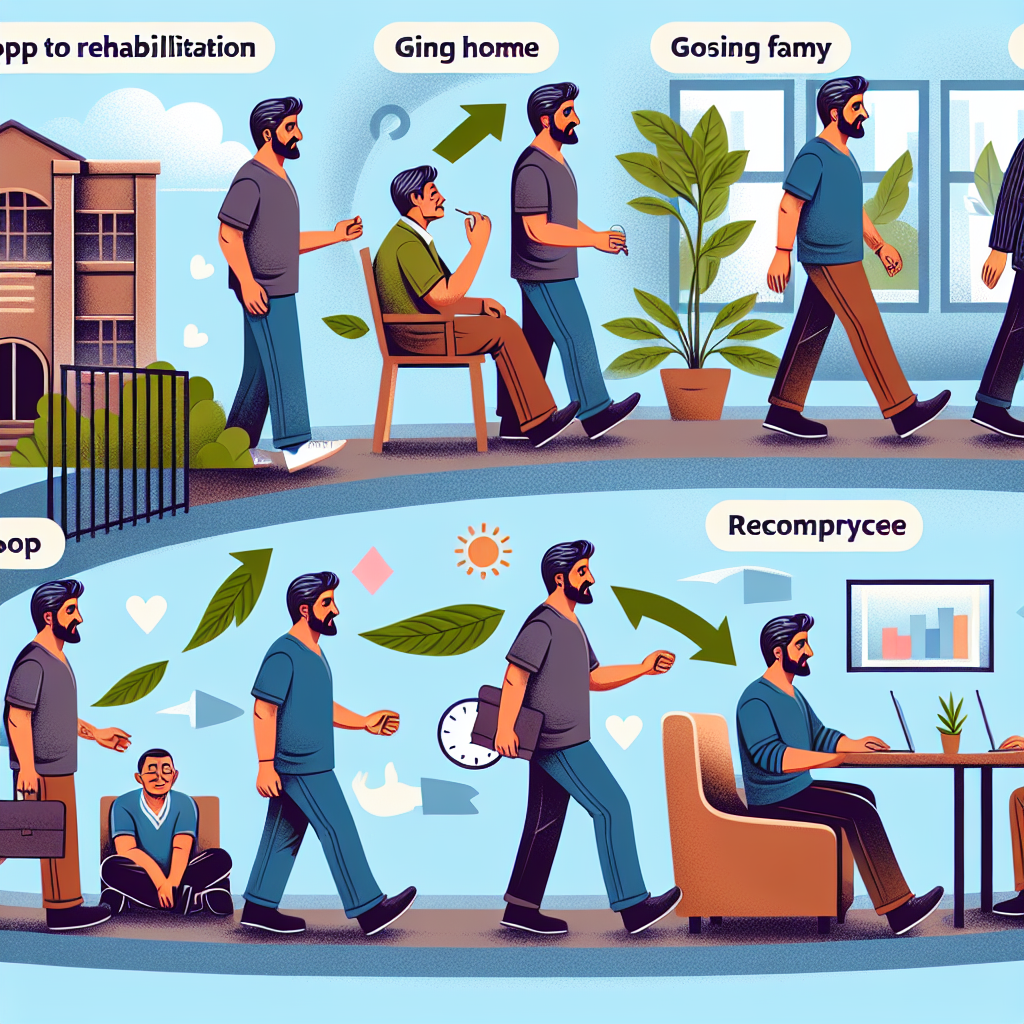-
Table of Contents
- Introduction
- Recognizing the Emotional Triggers of Heroin Addiction
- Strategies for Managing Anxiety and Depression in Heroin Recovery
- Building a Support System for Emotional Well-being During Heroin Addiction Treatment
- The Role of Therapy in Addressing Emotional Trauma Related to Heroin Addiction
- Q&A
- Conclusion
“Navigating the Heartache: Understanding and Coping with Heroin Addiction”
Introduction
Heroin addiction is a complex and multifaceted issue that extends far beyond the physical dependency on the drug. Understanding and coping with the emotional aspects of heroin addiction is crucial for both those struggling with the addiction and their loved ones. The emotional turmoil associated with heroin addiction can include feelings of shame, guilt, anxiety, and depression, which often exacerbate the cycle of addiction. Addressing these emotional challenges requires a comprehensive approach that includes psychological support, therapy, and a strong support system. By acknowledging and addressing the emotional dimensions of heroin addiction, individuals can better navigate the path to recovery and achieve long-term sobriety.
Recognizing the Emotional Triggers of Heroin Addiction
Understanding and coping with the emotional aspects of heroin addiction is a complex journey that requires both awareness and resilience. Recognizing the emotional triggers of heroin addiction is a crucial step in this process, as it allows individuals to identify the underlying issues that may be driving their substance use. Emotional triggers can vary widely from person to person, but common ones include stress, trauma, loneliness, and feelings of inadequacy. By acknowledging these triggers, individuals can begin to address the root causes of their addiction and develop healthier coping mechanisms.
One of the most significant emotional triggers for heroin addiction is stress. Life’s pressures, whether they stem from work, relationships, or financial difficulties, can become overwhelming. For some, heroin offers a temporary escape from these stressors, providing a sense of relief and euphoria. However, this relief is short-lived and often leads to a cycle of dependency. To break this cycle, it is essential to find alternative ways to manage stress. Techniques such as mindfulness, meditation, and physical exercise can be incredibly effective in reducing stress levels and promoting emotional well-being.
Trauma is another powerful emotional trigger that can lead to heroin addiction. Many individuals who struggle with addiction have experienced significant trauma in their lives, whether it be physical, emotional, or sexual abuse. The pain and suffering associated with these experiences can be unbearable, and heroin may be used as a means to numb these feelings. Recognizing the impact of trauma on addiction is vital, as it highlights the need for comprehensive treatment that addresses both the addiction and the underlying trauma. Therapy, particularly trauma-focused therapy, can be instrumental in helping individuals process their experiences and develop healthier ways to cope.
Loneliness and social isolation are also common emotional triggers for heroin addiction. Human beings are inherently social creatures, and a lack of meaningful connections can lead to feelings of emptiness and despair. Heroin may be used as a way to fill this void, providing a false sense of connection and belonging. To combat this, it is important to build a strong support network. This can include friends, family, support groups, and mental health professionals. Engaging in social activities and fostering positive relationships can provide the emotional support needed to overcome addiction.
Feelings of inadequacy and low self-esteem can also drive individuals towards heroin use. When people feel that they are not good enough or that they do not measure up to societal standards, they may turn to heroin as a way to escape these negative self-perceptions. Building self-esteem and self-worth is a critical component of recovery. This can be achieved through therapy, self-reflection, and setting achievable goals. Celebrating small victories and recognizing personal strengths can help individuals develop a more positive self-image.
In conclusion, recognizing the emotional triggers of heroin addiction is a vital step in the journey towards recovery. By identifying and addressing these triggers, individuals can develop healthier coping mechanisms and build a more fulfilling life. It is important to remember that recovery is a process, and it requires patience, perseverance, and support. With the right tools and resources, it is possible to overcome the emotional aspects of heroin addiction and achieve lasting sobriety.
Strategies for Managing Anxiety and Depression in Heroin Recovery
Recovering from heroin addiction is a journey fraught with numerous challenges, not least of which are the emotional hurdles of anxiety and depression. These mental health issues often accompany the physical withdrawal symptoms, making the path to recovery even more daunting. However, understanding and effectively managing these emotional aspects can significantly enhance the chances of a successful recovery. By employing a combination of therapeutic strategies, support systems, and self-care practices, individuals can navigate these turbulent emotional waters and emerge stronger on the other side.
One of the first steps in managing anxiety and depression during heroin recovery is recognizing that these feelings are a natural part of the process. The brain’s chemistry undergoes significant changes due to prolonged heroin use, and it takes time for it to readjust. During this period, feelings of anxiety and depression can be particularly intense. Acknowledging these emotions without judgment is crucial. It allows individuals to address them constructively rather than feeling overwhelmed or defeated by them.
Therapy plays a pivotal role in addressing the emotional aspects of heroin recovery. Cognitive-behavioral therapy (CBT) is particularly effective in helping individuals understand the thought patterns that contribute to their anxiety and depression. By identifying and challenging these negative thoughts, individuals can develop healthier coping mechanisms. Additionally, dialectical behavior therapy (DBT) can be beneficial, especially for those who struggle with intense emotional responses. DBT teaches skills such as mindfulness, emotional regulation, and distress tolerance, which are invaluable during the recovery process.
Support systems are another critical component in managing anxiety and depression. Engaging with support groups, whether in-person or online, provides a sense of community and shared experience. Knowing that others have faced similar struggles and have successfully navigated them can be incredibly reassuring. Moreover, these groups offer practical advice and emotional support, which can be a lifeline during difficult times. Family and friends also play a vital role. Open communication with loved ones about one’s feelings and challenges can foster a supportive environment that encourages recovery.
In addition to therapy and support systems, self-care practices are essential for managing anxiety and depression. Regular physical activity, for instance, has been shown to have a profound impact on mental health. Exercise releases endorphins, which are natural mood lifters, and can help reduce feelings of anxiety and depression. Furthermore, establishing a routine that includes adequate sleep, balanced nutrition, and relaxation techniques such as meditation or yoga can create a stable foundation for emotional well-being.
Mindfulness practices, in particular, can be transformative. Mindfulness involves staying present in the moment and observing one’s thoughts and feelings without judgment. This practice can help individuals detach from the intense emotions that often accompany recovery, allowing them to respond to these feelings more calmly and thoughtfully. Over time, mindfulness can reduce the overall levels of anxiety and depression, making the recovery process more manageable.
Lastly, it is important to celebrate small victories along the way. Recovery is a long and often arduous journey, and recognizing progress, no matter how minor it may seem, can boost morale and motivation. Each step forward, whether it is a day without using heroin or successfully managing a moment of anxiety, is a testament to one’s strength and resilience.
In conclusion, while the emotional aspects of heroin recovery can be challenging, they are not insurmountable. By understanding these emotions, seeking therapy, building strong support systems, and practicing self-care, individuals can effectively manage anxiety and depression. This holistic approach not only aids in recovery but also lays the groundwork for a healthier, more fulfilling life.
Building a Support System for Emotional Well-being During Heroin Addiction Treatment
Building a support system for emotional well-being during heroin addiction treatment is a crucial aspect of the recovery journey. Heroin addiction is not just a physical dependency; it deeply affects the emotional and psychological well-being of individuals. Therefore, addressing these emotional aspects is essential for a holistic approach to recovery. One of the first steps in this process is recognizing the importance of a strong support system. This network can include family, friends, healthcare professionals, and support groups, all of whom play a vital role in providing the emotional stability needed during treatment.
Family and friends are often the first line of support for someone battling heroin addiction. Their understanding, patience, and encouragement can make a significant difference in the recovery process. However, it is essential for them to educate themselves about addiction and its emotional toll. By doing so, they can offer more empathetic and effective support. Open communication is key; creating a safe space where the individual feels comfortable sharing their struggles without fear of judgment can foster trust and emotional healing.
In addition to personal relationships, professional support is indispensable. Therapists and counselors specializing in addiction can provide the necessary tools to cope with the emotional challenges that arise during treatment. Cognitive-behavioral therapy (CBT), for instance, is a common approach that helps individuals identify and change negative thought patterns and behaviors associated with addiction. Moreover, therapists can assist in developing coping strategies to manage stress, anxiety, and depression, which are often intertwined with substance abuse.
Support groups, such as Narcotics Anonymous (NA), offer a communal space where individuals can share their experiences and draw strength from others who are on a similar path. These groups provide a sense of belonging and understanding that can be incredibly comforting. Hearing stories of recovery and resilience can inspire hope and motivate individuals to stay committed to their treatment. Additionally, the accountability that comes with being part of a support group can encourage individuals to remain focused on their recovery goals.
While external support is vital, building internal resilience is equally important. Mindfulness practices, such as meditation and yoga, can help individuals stay grounded and present, reducing the emotional turmoil that often accompanies addiction. These practices promote self-awareness and emotional regulation, enabling individuals to respond to stressors more calmly and thoughtfully. Journaling is another effective tool for processing emotions and reflecting on progress, providing a tangible record of growth and change.
It is also crucial to address any co-occurring mental health issues, such as depression or anxiety, which can exacerbate addiction. Integrated treatment plans that simultaneously address addiction and mental health can lead to more successful outcomes. Medication-assisted treatment (MAT) may be an option for some, helping to stabilize mood and reduce cravings, thereby allowing individuals to focus more on their emotional recovery.
Ultimately, building a support system for emotional well-being during heroin addiction treatment is about creating a network of care that addresses the multifaceted nature of addiction. It requires a combination of personal relationships, professional guidance, communal support, and self-care practices. By fostering an environment of understanding, empathy, and resilience, individuals can navigate the emotional challenges of recovery more effectively. This holistic approach not only aids in overcoming addiction but also lays the foundation for a healthier, more fulfilling life.
The Role of Therapy in Addressing Emotional Trauma Related to Heroin Addiction
Heroin addiction is a multifaceted issue that extends far beyond the physical dependency on the drug. One of the most challenging aspects of overcoming heroin addiction is addressing the emotional trauma that often accompanies it. Therapy plays a crucial role in this process, offering a pathway to healing and recovery. Understanding the emotional dimensions of heroin addiction is essential for anyone seeking to support a loved one or navigate their own journey to sobriety.
Emotional trauma can be both a cause and a consequence of heroin addiction. Many individuals turn to heroin as a means of coping with unresolved emotional pain, whether it stems from childhood abuse, neglect, or other traumatic experiences. The temporary euphoria provided by heroin can offer a fleeting escape from these deep-seated issues, creating a dangerous cycle of dependency. However, as the addiction progresses, the emotional toll can become even more severe, leading to feelings of shame, guilt, and hopelessness.
Therapy offers a safe and supportive environment for individuals to explore and address these underlying emotional issues. One of the most effective therapeutic approaches for dealing with emotional trauma related to heroin addiction is Cognitive Behavioral Therapy (CBT). CBT helps individuals identify and challenge negative thought patterns and behaviors, replacing them with healthier coping mechanisms. By addressing the root causes of their addiction, individuals can begin to break free from the cycle of dependency.
In addition to CBT, other therapeutic modalities such as Dialectical Behavior Therapy (DBT) and Eye Movement Desensitization and Reprocessing (EMDR) can also be beneficial. DBT focuses on teaching individuals skills for emotional regulation, distress tolerance, and interpersonal effectiveness, which are crucial for maintaining sobriety. EMDR, on the other hand, is particularly effective for processing and healing from traumatic memories, allowing individuals to move past the emotional pain that may have contributed to their addiction.
Group therapy is another valuable component of the therapeutic process. Sharing experiences with others who have faced similar struggles can provide a sense of community and understanding that is often lacking in the lives of those battling addiction. Group therapy sessions offer a platform for individuals to express their emotions, gain insights from others, and build a support network that can be instrumental in their recovery journey.
Family therapy is also an important aspect of addressing emotional trauma related to heroin addiction. Addiction often strains relationships and creates a ripple effect of emotional pain within families. Family therapy sessions can help rebuild trust, improve communication, and foster a supportive environment for the individual in recovery. By involving family members in the therapeutic process, the chances of long-term recovery are significantly enhanced.
It is important to recognize that therapy is not a quick fix but rather a long-term commitment to healing and growth. The journey to recovery is often fraught with challenges, and setbacks are a natural part of the process. However, with the right therapeutic support, individuals can develop the resilience and coping skills needed to navigate these obstacles and continue moving forward.
In conclusion, therapy plays an indispensable role in addressing the emotional trauma associated with heroin addiction. By providing a safe space for individuals to explore their emotions, challenge negative thought patterns, and build supportive relationships, therapy offers a pathway to healing and recovery. While the journey may be difficult, the transformative power of therapy can inspire hope and pave the way for a brighter, healthier future.
Q&A
1. **What are common emotional challenges faced by individuals with heroin addiction?**
– Individuals with heroin addiction often experience intense feelings of shame, guilt, anxiety, depression, and isolation. These emotions can be exacerbated by the stigma associated with addiction and the impact of the drug on brain chemistry.
2. **How can family members support a loved one struggling with heroin addiction emotionally?**
– Family members can support their loved one by educating themselves about addiction, offering non-judgmental support, encouraging treatment, setting healthy boundaries, and seeking support for themselves through counseling or support groups.
3. **What therapeutic approaches are effective in addressing the emotional aspects of heroin addiction?**
– Cognitive-behavioral therapy (CBT), dialectical behavior therapy (DBT), and motivational interviewing are effective therapeutic approaches. These therapies help individuals understand and manage their emotions, develop coping strategies, and build motivation for recovery.
4. **How can individuals in recovery from heroin addiction manage emotional triggers?**
– Individuals can manage emotional triggers by developing a strong support network, practicing mindfulness and stress-reduction techniques, engaging in regular physical activity, attending therapy or support groups, and creating a structured daily routine to maintain stability.
Conclusion
Understanding and coping with the emotional aspects of heroin addiction requires a multifaceted approach that includes recognizing the psychological triggers, addressing underlying mental health issues, and providing comprehensive support systems. Effective treatment should integrate medical, psychological, and social interventions to help individuals manage cravings, develop healthier coping mechanisms, and rebuild their lives. Emotional support from family, friends, and support groups is crucial in fostering a sense of belonging and reducing feelings of isolation. Long-term recovery is more likely when individuals have access to continuous care and resources that address both the emotional and physical dimensions of addiction.



